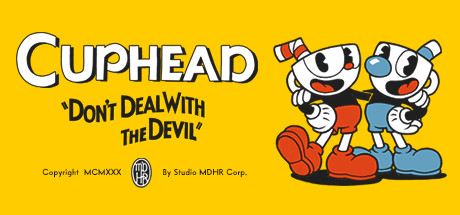Entertainment
Composer hopes ‘Cuphead’ Juno nod will change perceptions about video game music

FILE: Cuphead artwork (Photo By Source, Fair use)
TORONTO — When orchestral percussionist Kristofer Maddigan began his years-long journey composing the soundtrack for a video game his friends were creating, he mostly kept the passion project to himself.
As a genre, video game music doesn’t get a lot of respect.
“I work with a lot of people who aren’t gamers and I think if you’re not in that world a lot of people think it’s kind of a silly pastime,” says the 38-year-old Regina native, who is now based in Toronto as the principal percussionist with the National Ballet of Canada Orchestra.
“Not every game is a work of art, but especially now with the indie game revolution, there’s a lot of really interesting games being made and a lot of really incredible music being made for those games.
“But I didn’t really talk about it a lot because there’s a lot of people who maybe don’t understand the world so much and think it’s maybe kinda goofy.”
But his work on the indie game “Cuphead” — which was named one of the top titles of 2017 by the likes of Entertainment Weekly and game website Polygon — won over the Juno Award judging committee who chose the contenders for this year’s best instrumental album prize.
The game’s backing music, which was also released as an almost three-hour-long album, features a mix of jazz, big band and ragtime tunes recorded by live musicians, including a 13-piece big band and a 10-piece ragtime ensemble.
While many video games use looping bits of music to play endlessly in the background, Maddigan and “Cuphead” creators Chad and Jared Moldenhauer decided they wanted fully formed songs for the soundtrack that were true to the sound of the 1930s. The game’s visual look is also inspired by cartoons and animation of that era.
“We sort of decided early on that we wanted the songs to stand on their own, especially because we knew we were going to be using live musicians as well…. It’s a fairly different approach than most games have taken,” Maddigan says, adding the project required a huge amount of research and he needed to be talked into taking it on.
“I recall saying, ‘Definitely not, this is way out of my comfort zone,’ but I think I was maybe the only musician they knew so they kind of persisted.
“I’d never written any big band music before, I’d done very little composition period (but) I’ve always loved jazz and liked music from that era.”
Maddigan hopes the Juno recognition will convince others that there’s much more to video game music than the low-fi “Super Mario Bros.” melodies so many gamers think of first when it comes to soundtracks. He also hopes some “Cuphead” gamers end up wanting to explore jazz and big band music.
“The game itself has the potential to expose a large group of people to this type of music, who either were not familiar with it at all or had dismissed it as being not cool,” he says.
“This is maybe going to inspire people to go back and listen to the classic artists from that era, maybe check out any form of jazz music, even something more modern.”
Maddigan is up for the best instrumental album Juno along with Do Make Say Think for “Stubborn Persistent Illusions,” Five Alarm Funk for “Sweat,” Oktopus for “Hapax,” and Peregrine Falls for its self-titled album.





















